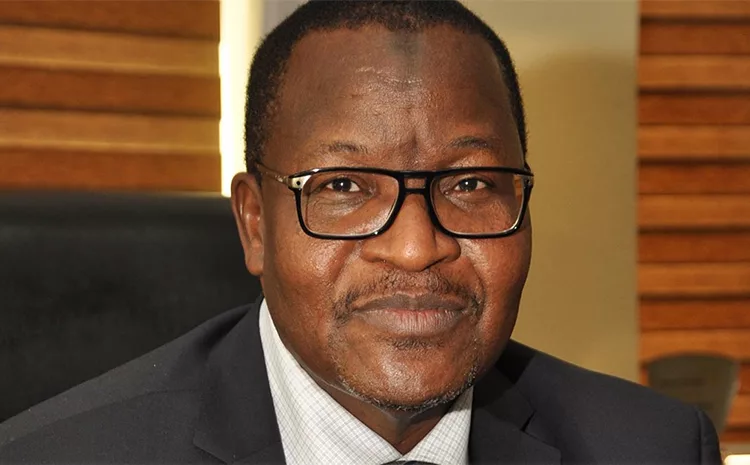In 2001, the Nigerian Communications Commission (NCC) embarked on full deregulation of the telecommunications market with the issuance of the Digital Mobile Licence (DML) to two private operators, thus breaking the monopoly of the historical sectoral operator, Nigerian Telecommunications Limited (NITEL).
Today, the telecom industry has recorded tremendous growth in all segments of the market. The industry has witnessed quite impressive statistics, pointing to how telecommunications policy and decisions of the government have continued to influence the growth of Nigeria’s digital revolution marked by positive multiplier effects on other sectors of the economy.
Historically, the Wireless Telegraphy Act (WTA) enacted in 1961 and having preceded all other extant laws in the sector provided clarity concerning the nature of the regulatory management of communications in Nigeria.
Essentially, the Act seeks to regulate the licensing, location and operation of wireless telegraphy services in Nigeria. Combined with the Nigerian Communications Commission Decree 75 of 1992 and the National Telecommunications Policy (NTP) of 2000, the WTA provided the springboard for the Nigerian Communications Act (NCA) 2003, which set the tone for the deregulation and liberalization of the telecom sector.
It is appropriate to say that the Nigerian communications policies in the last 22 years have birthed remarkable, concrete and measurable revolutionary changes. The NCA 2003, which is the primary regulatory instrument for the telecommunications sector and is now being considered for a review considering the rapid developments in the digital space, provides a firmer foundation upon which the telecom sector rode to prominence and impact in the last 22 years.
Suffice it to say, that between 2001 and now, Nigeria emplaced several forward-looking policy and regulatory initiatives that have consistently put Nigeria on the path of digital innovation and growth.
In specific terms, the National Digital Economy Policy and Strategy (NDEPS) 2020 – 2030, is a major policy driving the digital revolution in Nigeria. The NDEPS, combined with other policy documents, strategies, regulations, guidelines and directions, developed by NCC, facilitated the implementation of the Commission’s mandate.
Other policy strategies include the National Broadband Plan (NNBP) 2020-2025, the National Policy on 5G Networks for Nigeria‘s Digital Economy, Commission’s ongoing Strategic Management Plan (SMP) 2020-2024, and the Strategic Vision Plan 2021-2025 (otherwise called SVP II, and sequel to the Eight-point Agenda which was implemented from 2015-2020).
The SVP II is indeed an intentional, conscious, and dedicated effort by the Management of NCC to streamline the telecom component of key policy vision of the Federal Government (including the Economic Recovery and Growth Plan) towards a more strategic and measurable implementation.
The Commission has championed the implementation of these policies on digital access and connectivity through various initiatives and regulatory interventions to ensure that more Nigerians have access to digital services that are affordable.
The NDEPS 2020 – 2030 spindles around the following eight pillars to accelerate the development of a digital economy in Nigeria:
- Developmental Regulation (effective regulation of the ICT and digital sector in a way that enables and enhances development).
- Digital Literacy and Skills (providing policy backing for massive training of Nigerians from all works of life to enable them to obtain digital literacy and other digital skills).
iii. Solid Infrastructure (deployment of fixed and mobile infrastructure to deepen the broadband penetration in the country) and
- Service Infrastructure (support for Government Digital Services and the provision of robust digital platforms to drive the digital economy).
- Soft Infrastructure (strengthening public confidence in the use of digital technologies and participation in the digital economy).
- Digital Services Development and Promotion (development of a vibrant digital ecosystem that supports Innovation Driven Enterprises (IDE) and Micro Small and Medium Enterprises (MSMEs) in a way that engenders innovation).
vii. Digital Society and Emerging Technologies (focus on tying the development of the digital economy to indices of well-being in the lives of ordinary citizens; mentoring startups on emerging technologies to enable them to deploy their solutions).
viii. Indigenous Content Development and Adoption (provision of a policy framework that gives preference to digitally skilled Nigerians for government-funded projects in line with Executive Orders 003 and 005 of President Muhammadu Buhari).
The NCC, in line with its commitment to regulatory excellence, has relentlessly pursued the implementation of NDEPS to achieve the objectives of the Federal Government. Among these objectives are: Target 70 per cent broadband penetration in four years; To accelerate the digitalization of government processes and improve service delivery, transparency, and accountability.
Other are to improve trust, confidence and security around digital processes and activities; to attract and grow digital jobs across all sectors of the economy; to develop the technology start-up ecosystem by actively promoting innovation and entrepreneurship.
To support the digital literacy of Nigerian Citizens, Business and Government workers and enable them to acquire cutting-edge digital skills; to achieve a 95 per cent Digital Literacy Level in Nigeria within the next 10 years; to develop a digital education curriculum to meet the current and future needs of the Digital Economy.
To ensure that indigenous technology companies can participate actively in government-funded technology programmes; and to ensure that the policy and regulatory instruments are fit-for-purpose and support the digital business environment. The implementation of these policies and strategies by the Commission and other stakeholders has resulted in the impressive growth of the economy going to impressive statistics posted by the telecommunications sector.
Today, the active telecom subscribers have grown significantly to 218.6 million from about 400,000 aggregate telephone lines in the country as of 2000, on the eve of liberalisation. This represents a teledensity of 114.7 per cent. Basic Internet subscriptions grew from zero ground to 152.9 million currently while broadband subscriptions stand at over 88.2 million, representing a 46.24 per cent penetration as of November, 2022.
The industry has also become a major contributor to our national economy with the Information and Communication Technology (ICT) industry contributing 18.94 per cent to the nation’s Gross Domestic Product (GDP) as of the second quarter of 2022, according to the latest data released by the National Bureau of Statistics (NBS). From this, the telecommunications sector alone contributed 15 per cent to GDP.
The ICT contribution to GDP is, by far, the second largest contributor to the national economy aside from the agricultural sector. From less than $500 million investment in 2001, the investment profile in the nation’s telecommunications sector has also surpassed $70 billion. The telecommunication sector has also created direct and indirect jobs for millions of Nigerians to date.
With all these indices of growth in the telecom sector, arising from the effective implementation of various telecommunication policies and strategy documents, the sector has continued to redefine the way operational and professional activities are carried out with greater efficiency and effectiveness. Access to the Internet, and more importantly, broadband, has become very central to official and personal lives.
For emphasis, the influence of telecommunications/communications policies, strategies and regulatory frameworks on Nigeria’s digital revolution has been phenomenal and the NCC, would continue to do its best in the discharge of the Commission’s mandate, especially in facilitating broadband deployment, which is central to diversifying the Nigerian economy and building our national development in line with the National Digital Economy agenda.
It is the belief of the stakeholders that the communications industry, under the leadership of the Ministry of Communications and Digital Economy, will experience more quantum leap and retains its current leadership role in the telecommunications space to lead Nigeria into the next level of development.





